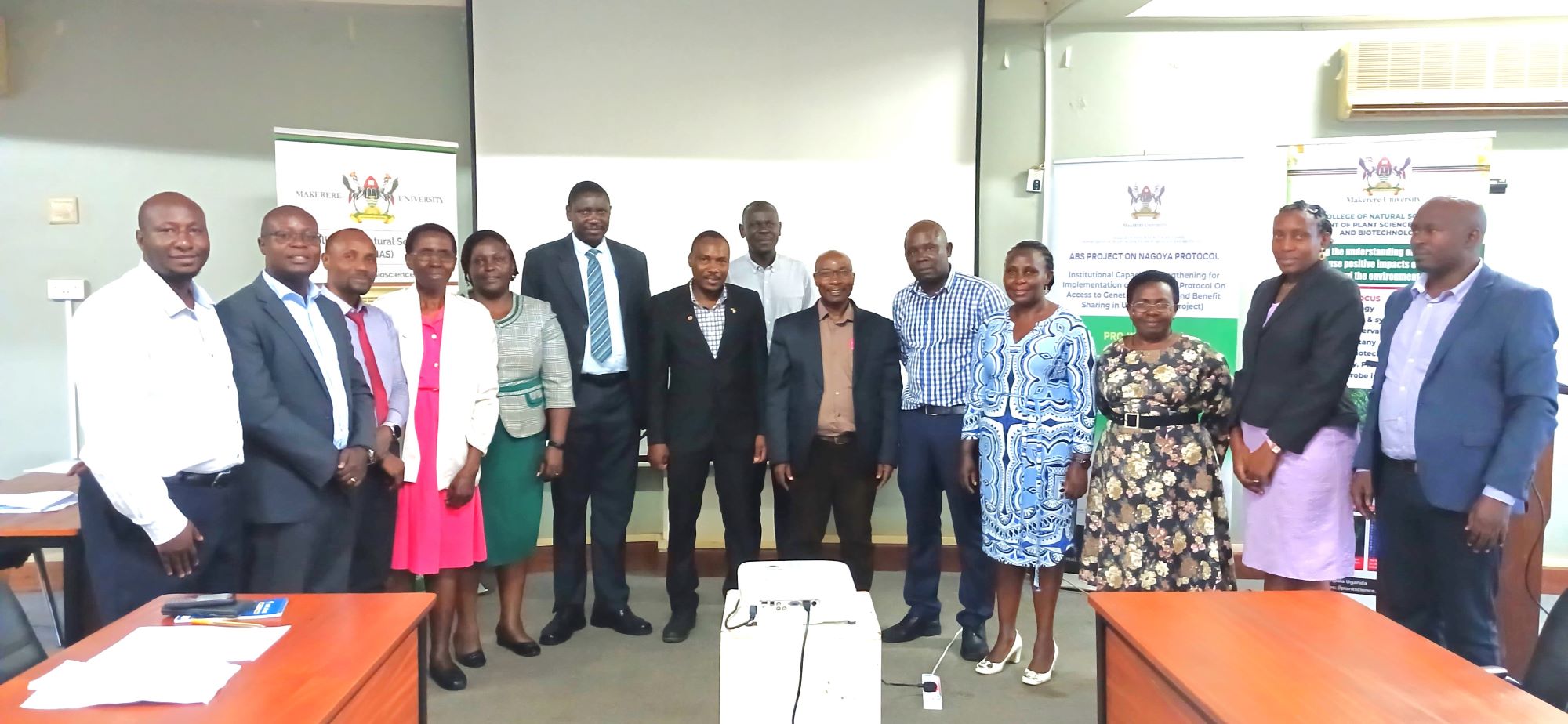*****Institutional Capacity Strengthening for Implementation of the Nagoya Protocol on Access to Genetic Resources and Benefit Sharing in Uganda (ABS) is a collaborative project between the National Environment Management Authority (NEMA) and Makerere University.
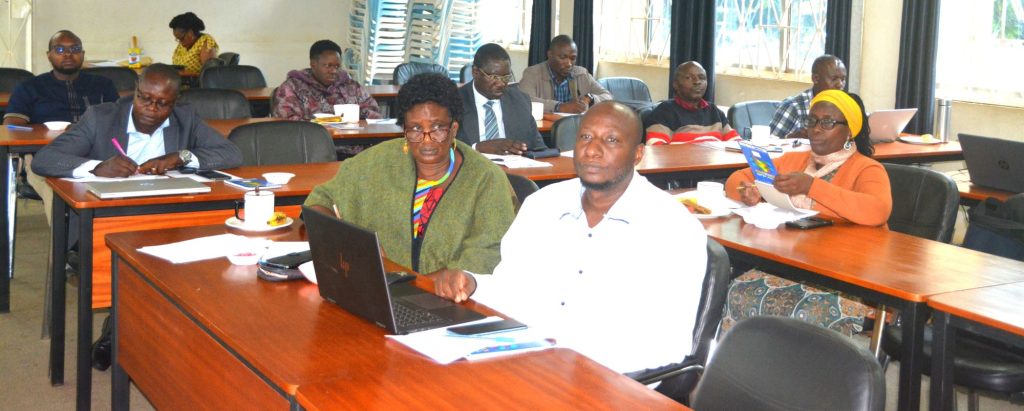
Overview
Uganda is a country that is very rich in biodiversity, and this provides the country with the opportunity to harness these resources for human wellbeing including wealth creation, national development, achievement of sustainable development goals, as well as improvement of livelihoods of indigenous people and local communities.
Biodiversity is however in decline globally, regionally and nationally due to many factors. In order to address this, the Convention on Biological Diversity (CBD) was adopted by the global community in 1992 during the Rio Earth Summit on Environment and Development. Uganda ratified the CBD on 8th September 1993. The CBD lays the foundation for the global community to take action to address loss of biodiversity.
In 2010, Parties to the CBD adopted the Nagoya Protocol on Access to Genetic Resources and Benefit Sharing (ABS). The Nagoya Protocol on ABS provides legal certainty on how Parties to the CBD and Nagoya Protocol on ABS can benefit from the utilization of genetic resources that are within their jurisdiction.
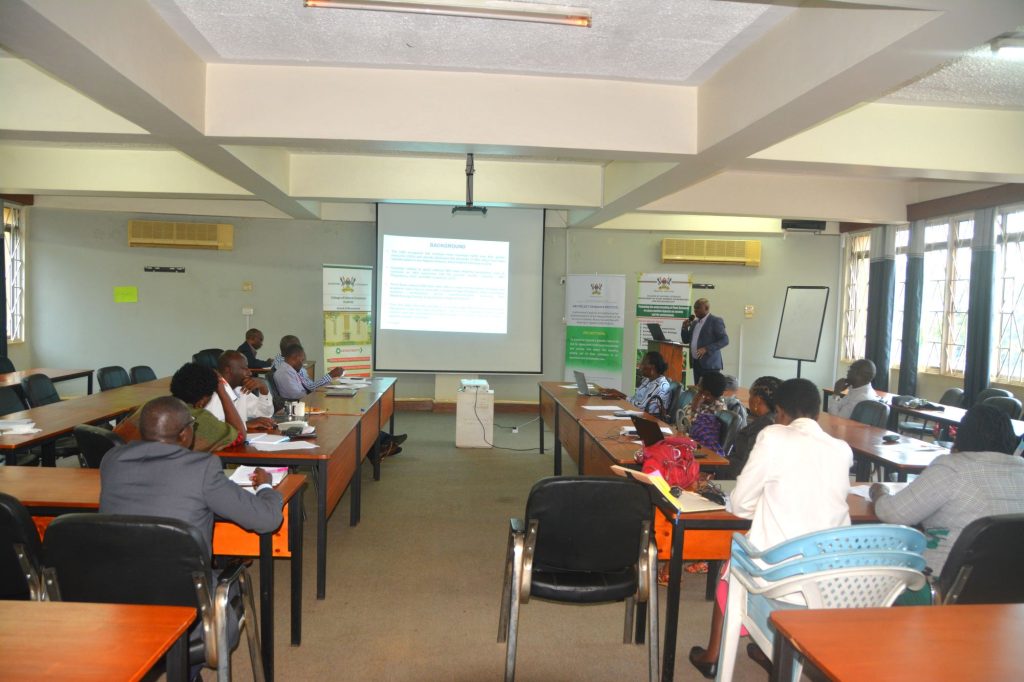
However, without the necessary institutional capacity, Uganda may not fully benefit from access to, and utilization of its genetic resources as provided for by the Nagoya Protocol on ABS. It is for this reason that NEMA on” Institutional Capacity Strengthening for Implementation of the Nagoya Protocol on Access to Genetic Resources and Benefit Sharing in Uganda” supported by the Global Environment Facility (GEF) under GEF6 window has undertaken a collaboration with Makerere University. The project will strengthen institutional capacities for the effective implementation of the Nagoya Protocol and develop curriculum covering ABS issues and concerns in Uganda.
Makerere will pilot this project in training and producing professionals with knowledge on ABS in Nagoya protocol. The project is hosted in the Department of Plant Sciences, Microbiology and Biotechnology in the School of Biosciences at the College of Natural Sciences (CoNAS).

Project inception meeting
On 7th November 2023, Makerere University held an inception meeting for the project to, among other issues, expose participants to the Nagoya Protocol on ABS and its implementation in Uganda the Role of higher institutions of learning in ABS Mechanisms; and the national regulatory mechanisms. The meeting also aimed to define the required training level for ABS programme and teaching Resources (Physical, human, logistical, and financial), develop or update the curriculum content to include ABS competencies, enrich/update the teaching notes to reflect ABS competencies in case of topics already available in the present curriculum, and to provide an approved draft curriculum by the University administration.
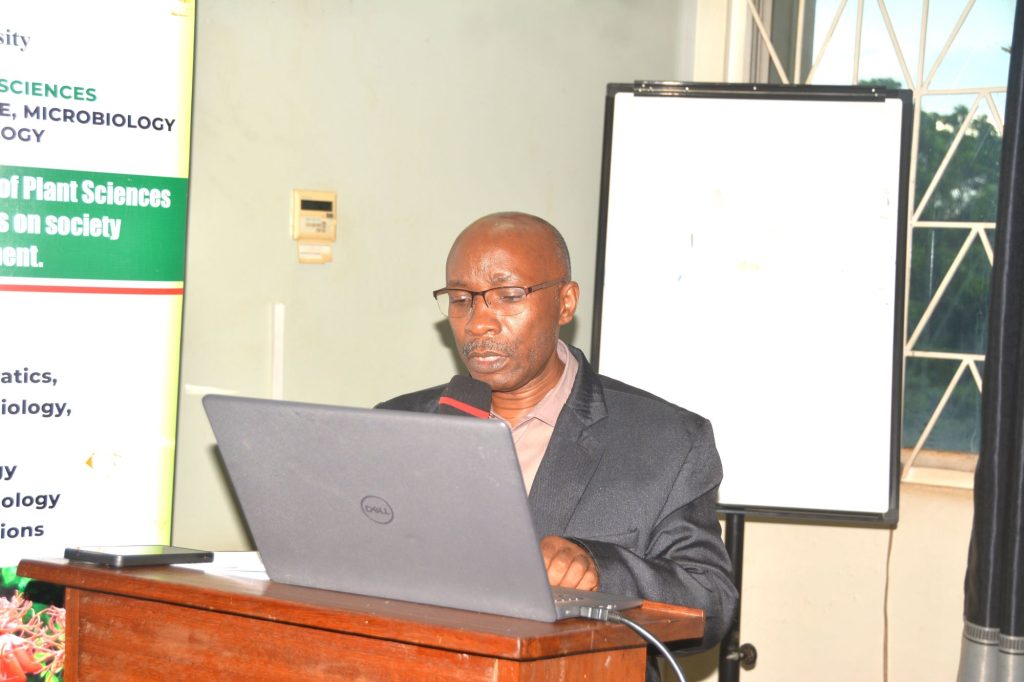
The output and outcome of the project is to build capacity of professionals in ABS issues. This will greatly contribute to the economic development of the nation, the satisfaction of the resource and knowledge owners as well as those that access the resource and the knowledge. This project is in line with SDG 1-Poverty eradication.
In her presentation, the Project Principal Investigator, Dr Katuura Esther noted that upgrading curricula to include ABS- and Nagoya protocol related issues is one of the main strategies the project is undertaking. Target curriculum to be improved – BSc Applied and Economic Botany, BSc in conservation biology, Bachelors of Biotechnology, Masters in Botany, Masters in Genetics, Masters in Plant Pathology and Crop Science, and Masters in Economic Botany.
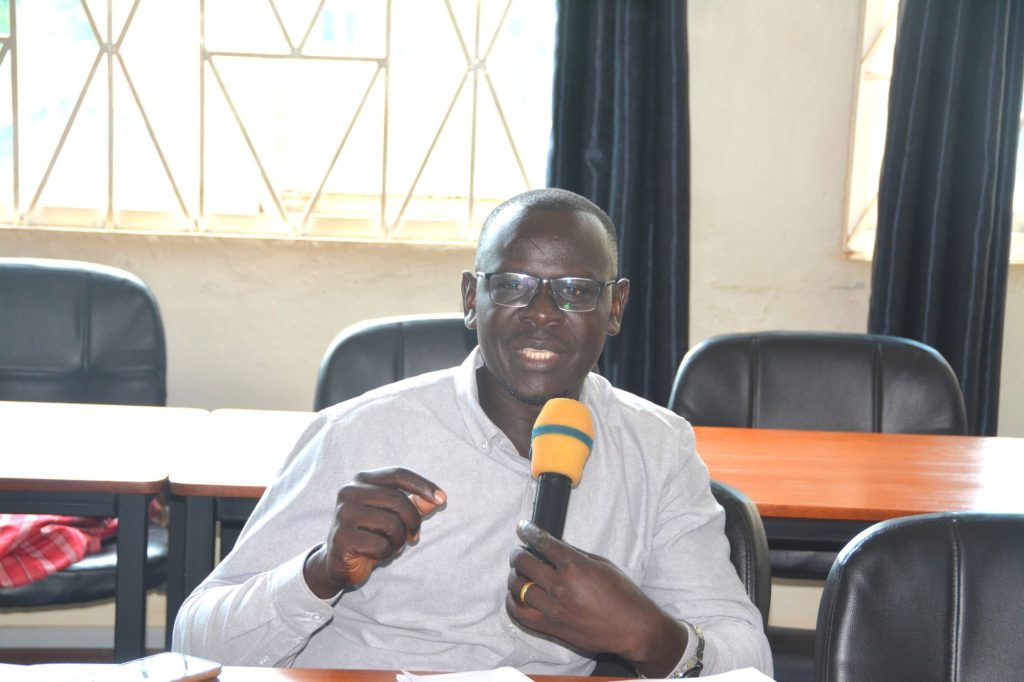
Addressing participants, the Principal of CoNAS, Prof. Winston Tumps Ireeta appreciated the GEF through NEMA for availing the financial support to Makerere University. He also thanked the Uganda National Council of Science and Technology (UNCST) and other partners for allowing the collaboration for streamlined ethical research procedures in line with Access and benefit sharing of biological resources in Uganda.
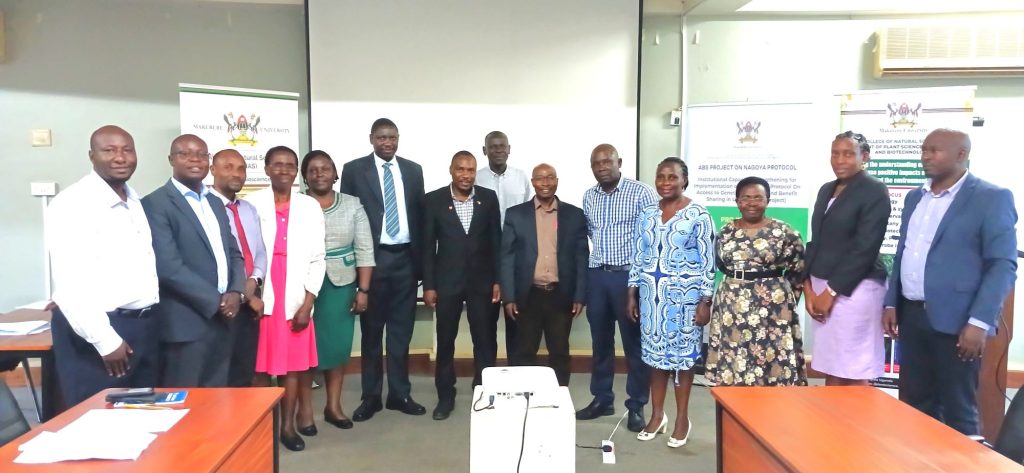
Project goal
To conserve Uganda’s genetic resources and associated traditional knowledge and access and share the benefits arising out of their utilization in an equitable and sustainable way.
Project components
These are basically four including:
- Component One: Strengthened National Regulatory and Institutional Framework for ABS;
- Component Two: Capacity building for the implementation of the National ABS;
- Component Three: Strengthening ABS Management at the Local government and Community Level;
- Component Four: Information, Education and Awareness on ABS.
Project target areas, beneficiaries and geographical focus
The primary beneficiaries are men, women/citizens of Uganda;
- Indigenous Peoples and Local Communities (Karamoja region, South-western and Western regions) specifically the Karimojong and Batwa.
- Local governments of (Moroto, Nakapiripirit, Napak, Kotido, Abim, Amudat, Kaabong, Kisoro, Kabale, Bundibugyo, Kanungu and Rubanda).
- The private sector
- Government MDAs
Benefits include;
- Trainings
- Protection especially IPLCs
- Connections including certification of products
- Awareness and appreciation
- Technology and information sharing.
Expected outcomes
Outcome 1.1 National ABS regulatory and institutional frameworks in compliance with the Nagoya Protocol on ABS in place and operational;
Outcome 2.1: Government agencies have the skills and competency to implement and enforce compliance to the Nagoya Protocol;
Outcome 2.2: Makerere University training and producing professionals with knowledge on ABS;
Outcome 2.3: ABS National Focal Point and CNAs effectively carrying out their functions;
Outcome 3.1: Effective working models for ABS at the local community level;
Outcome 3.2: Effective participation of men and women in benefit sharing;
Outcome 4.1: Increased awareness in Uganda on the Nagoya Protocol on ABS
In the implementation of ABS project Makerere University will contribute in the attainment of Outcome 2.2: Makerere University training and producing professionals with knowledge on ABS.
Expected outcome from Makerere University
- Review existing curriculum in the Department of Botany;
- Conduct DACUM (Developing a Curriculum) process and update curriculum content;
- Implement the curriculum in the department of Plant Sciences, Microbiology and Biotechnology by training students and other stakeholders (scientists, social workers, lawyers, judiciary, prosecutors and police in ABS matters;
- Train at least 60 professionals’ (scientists, social workers, lawyers, judiciary, prosecutors and police), imparting knowledge and skills in articulating and negotiating PIC and MAT.

